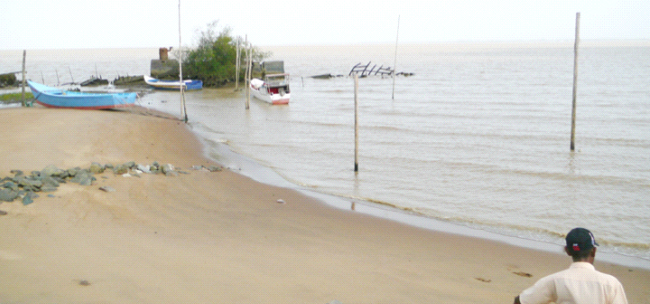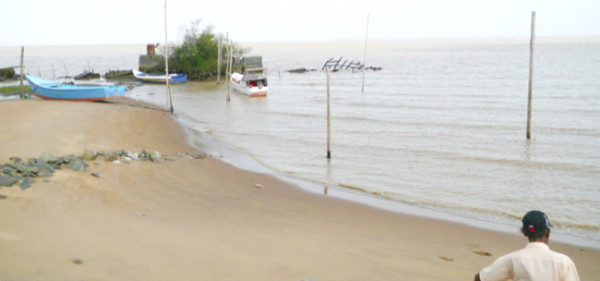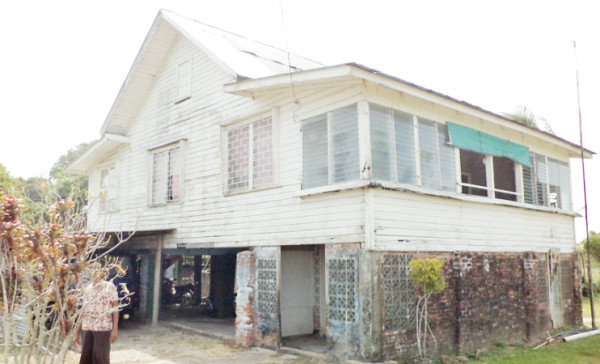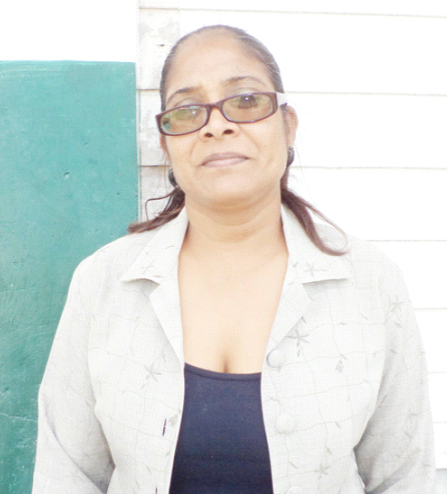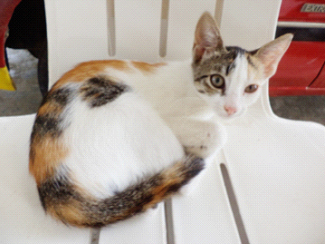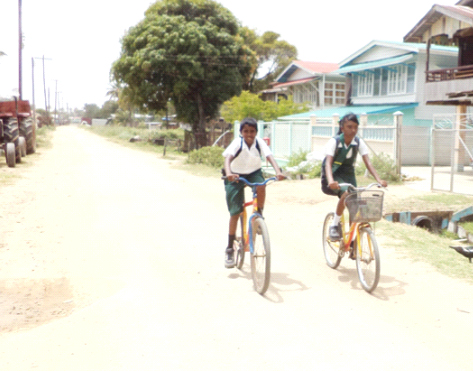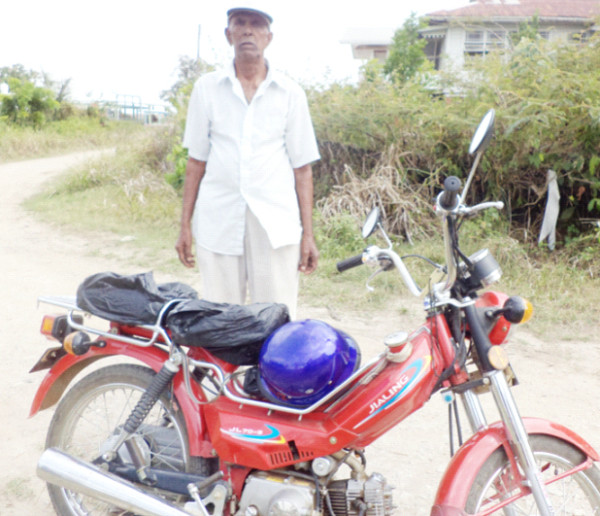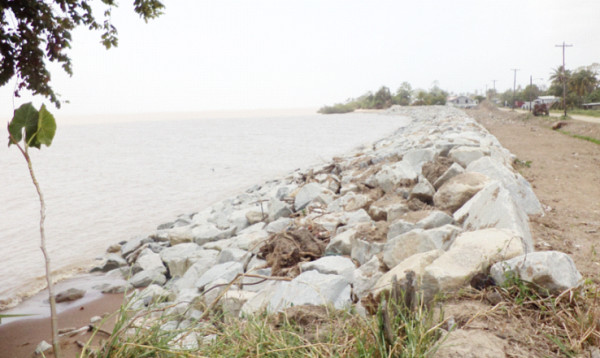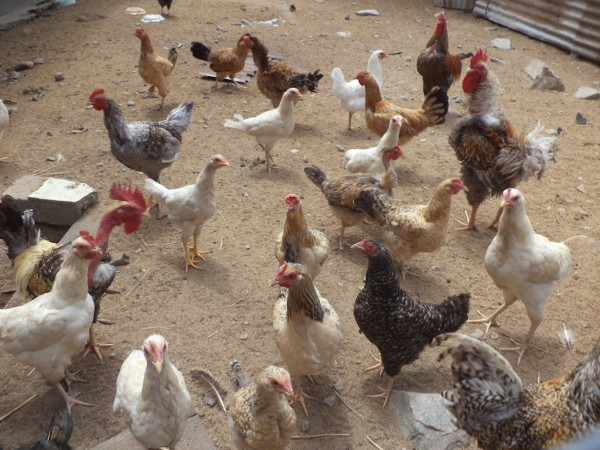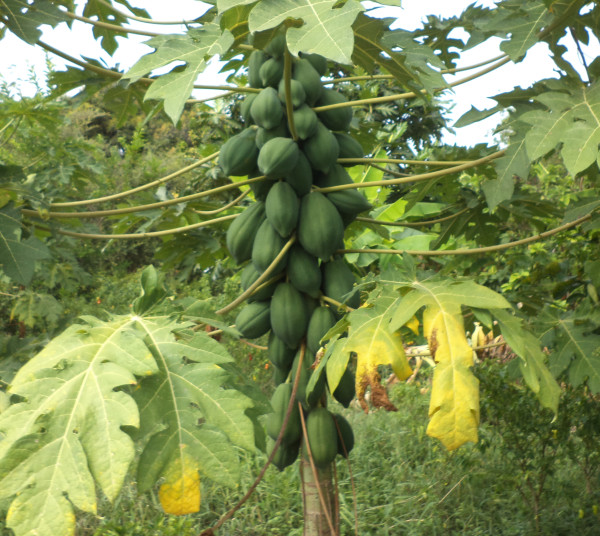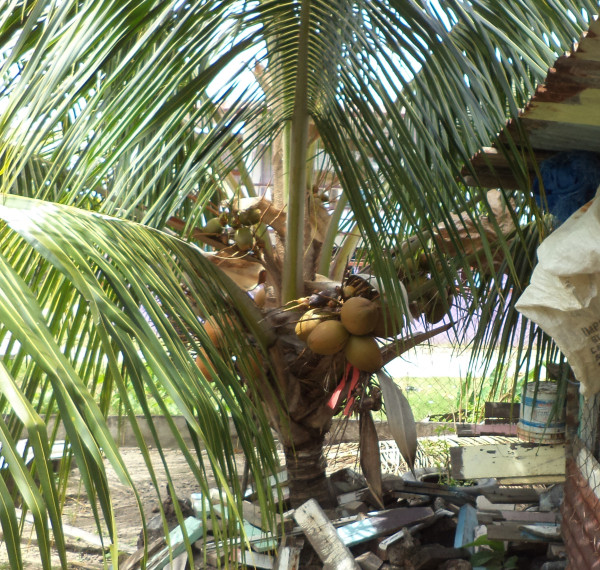Story and photos by Shabna Rahman
Residents of Maryville, Leguan Island are facing the effects of El Nino and were unable to cultivate rice for the current crop, though it is the main source of income for
many farmers.
Some of them also rear cattle and other livestock but the grass is becoming too dry as well. Their cash crop and provision farming have also scaled down because of the drought.
But these setbacks did not stop them from being friendly although some of them were too shy to be featured in the newspaper.
Residents described the predominantly East Indian village as being quiet and peaceful with everyone looking out for each other.
The village has a mosque, a mandir and a church where residents worship, as well as a primary school and shops. There is a beautiful brown sandy beach on the western side.
The neighbouring island of Wakenaam is located on the eastern side.
Residents said they had suffered constant flooding from overtopping during the high tide. They recalled that the water used to get into their yards and even their homes. But a new sea defence structure completed just over a month ago has brought relief. They praised the contractor Azad Construction for doing “a wonderful job.”
Apart from having petty thefts sometimes, the village is relatively very safe. Residents said that because there are no recreational facilities for the youth to engage in positive activities, they would indulge in consuming drugs and alcohol and engage in gambling.
Ramcharran Tiwari, 79, said it is not just the young people who don’t have anything to do but there is also no entertainment for the senior citizens and they would get bored. He suggested that people from groups or organizations could visit and give health talks, read some history, show movies or even provide a meal for them once per month.
He said the elderly folks contributed a lot to the community and they should not be neglected. But he also feels that “Leguan people on the whole are neglected. They only use us for votes…”
He was engaged in rice and cattle farming but stopped about 15 years ago. He recalled that he encountered many difficulties with rice farming such as flooding, drought and diseases.
Tiwari said he grew up with his maternal grandparents and dropped out of school at age 10 after his grandfather died. He had to help his grandmother in the rice field and recalled reaping paddy with a grass knife.
Meanwhile, some of the residents said that they are “taxpayers but yet the main trench was not cleaned in a while.”
Poor state of rice industry
Abdool Shaw, known as ‘Dads’ was happy that this newspaper dropped in because he wanted to share information about the poor state of the rice industry.
He planted 120 acres of paddy, which was sold to a miller from La Bagatelle Village at a cost of $1,500 per 180-pound bag. The miller still owes him.
He said too that another miller, RN Persaud, bought paddy from him since the previous crop in March last year and still owes him. As a result, he is unable to pay his instalments as well as expenses for harvesting.
He called on the government to intervene so that he and the other farmers would receive their money from the millers.
They also need assistance with seed paddy and fuel to cultivate the next crop that should start by next month. He had also lost some seed paddy when the water overtopped during the spring tide and flooded his yard.
Added to that, farmers are facing the effects of El Nino and were unable to cultivate this crop. “No rice was planted in Leguan. We have nothing to survive on in this dry season… The labourers are not getting jobs… Everybody is affected,” he said.
Shaw, a father of four and grandfather of two, lamented that the millers owe him $1.1 million. “Times are hard. I depend solely on the rice business…,” he added.
He could not see why the millers cannot pay when they already sold the rice. According to him, the local millers are “taking advantage” because the farmers are unable to transport the paddy to other millers off the island.
He said one of the millers “sell out everything and converted the money to his own use.”
Shaw and his wife babysit their three-year-old grandson, Sameer, whose mother teaches at the Maryville Primary. The child was busy riding his toy excavator and motorcycle.
A few houses away, Sandra was sitting on a bench while her husband Sudesh Samsundar was in a hammock relaxing.
They were chatting with a neighbour who was visiting at the time. Their cat, Suzie was resting on a chair and didn’t seem to mind having her photos taken, unlike her owners.
Sandra had finished her cooking and other household chores. She likes to keep herself busy by taking care of her kitchen garden and Creole fowls and ducks. She also has a few “meat-birds” that she rears for “home use.”
She starts her day from 4.30 am and said she wakes up early to send her son off to work with BK Construction. He is as an operator on a sea defence project at another section of the island.
The project should be completed in a few months and she is worried about where he would find another job. The couple also has two other children.
Sudesh is also engaged in rice and cattle farming and is also a skilled goldsmith. However, none of those businesses is profitable right now.
Sandra took this reporter around her yard where she proudly showed off her ducks and chickens and produce from her kitchen garden.
We caught up with the head teacher of the Maryville Primary, Juliet Augustus who started her career right after completing high school.
Four years later she became qualified and was posted at the same school. Twenty-five years later she still teaches at that school and works beyond the call of duty.
She gives extra tutoring to her students of Grade Two and also works with mostly the slow learners from other grades. She loves children, hence her dedication.
Augustus said the school has a lot of “high flyers” who would perform well at the National Grade Six Assessment.
Mass murder
Residents recalled that a mass murder that took place in the village nearly 81 years ago, but they did not know the details and told this newspaper that the information was available on the internet.
On June 18, 1935, seven persons were killed in the bloodbath. Brutally murdered were the owner of the estate Abdool Rahman Khan, his family members and two guards.
At the time, Khan’s son, Majeed and his grandson, Azeez had gone to the Silver Jubilee celebrations of King George V in Georgetown.
According to films available on YouTube, conversations were overheard that some of the workers wanted to attend the celebrations but did not have the cash.
They decided to hatch a plan and it unfolded when they knocked on Khan’s door around 8 pm, telling him that some men were stealing his paddy in the backdam.
Khan and his grandson, Boyo, two of his guards along with the other workers went to investigate.
The workers pointed to a lantern hanging on a tree and told Khan and the others to go there and when they did, they were ambushed and brutally chopped to death.
They then took the keys to the safe out of Khan’s pocket and returned to his house.
They knocked on the door again and asked his daughter-in-law Jaitoon for a drink of water. She turned to give it to them and they followed her into the house and slashed her neck.
Khan’s granddaughter, Betty (Bodo’s sister) ran out of the room crying and was chopped across the face; her young body slumped to the floor.
Majeed’s wife Halima rushed out of her room to investigate and she was chopped across the back. Finally, the path to the safe was clear and the men went into the room and opened the safe with Khan’s key. They stuffed the loot, which amounted to $15,000, into their pockets.
As they were leaving they realized that their last victim was not at the spot where she fell and began searching the rooms for her.
The attackers found her cradling her nine-month-old baby Nazir, and they plucked the baby out of her hands and threw him into the bed rails. They ensured that they finished her off and before escaping. The baby survived.
Early the next morning, farmers on their way to the backdam noticed the bodies of Khan, his grandson and guards lying on the dam, which to this day is known as ‘Murder Dam’.
Further checks led to the discovery of the other bodies in the home. There were blood stains everywhere, even on the concrete below where it had seeped down through the flooring.
Two of the alleged attackers; Zwarka and Tailor-man were charged with the murders. Tailor-man was acquitted on his account that Zwarka had threatened to kill him if he did not participate in the devious crime. Zwarka was found guilty, sentenced to death and later hanged.
Majeed continued to manage the estate, but subsequently died. His children, Azeez and Nazir, were still young at the time of his death and the court named his bookkeeper, Jabar, the executor of the estate.
But several years later another misfortune occurred. Jabar’s wife, who was handicapped, knocked over a lamp, which started a fire in their home. He attempted to save her but they both perished in the fire.
History repeated itself when Azeez, who had migrated, was murdered in 1992 during one of his visits. He had returned home from a business trip in Georgetown and tried to prevent some residents from grazing cows on his land.
They refused and a heated confrontation ensued. Azeez was assaulted and then fatally shot with his own gun.
Nazir, who had taken his wife on a world tour before she was separated from him, ended up losing all of his wealth due to his drinking habit, according to reports.
A resident, Nazir Haniff, a farmer and vendor, bought the house and lives there with his wife and son. He was not aware of the details of the massacre.
